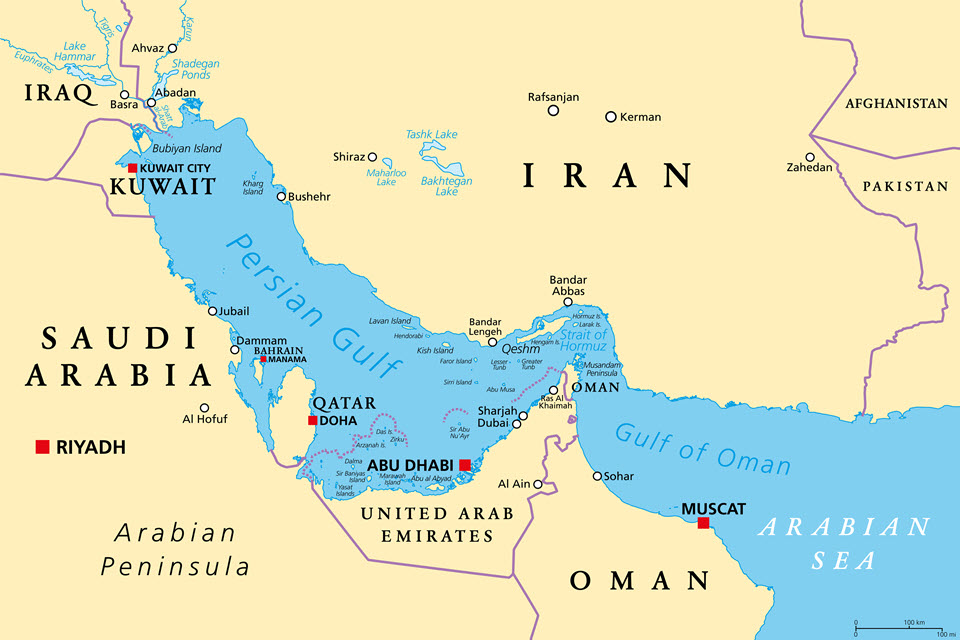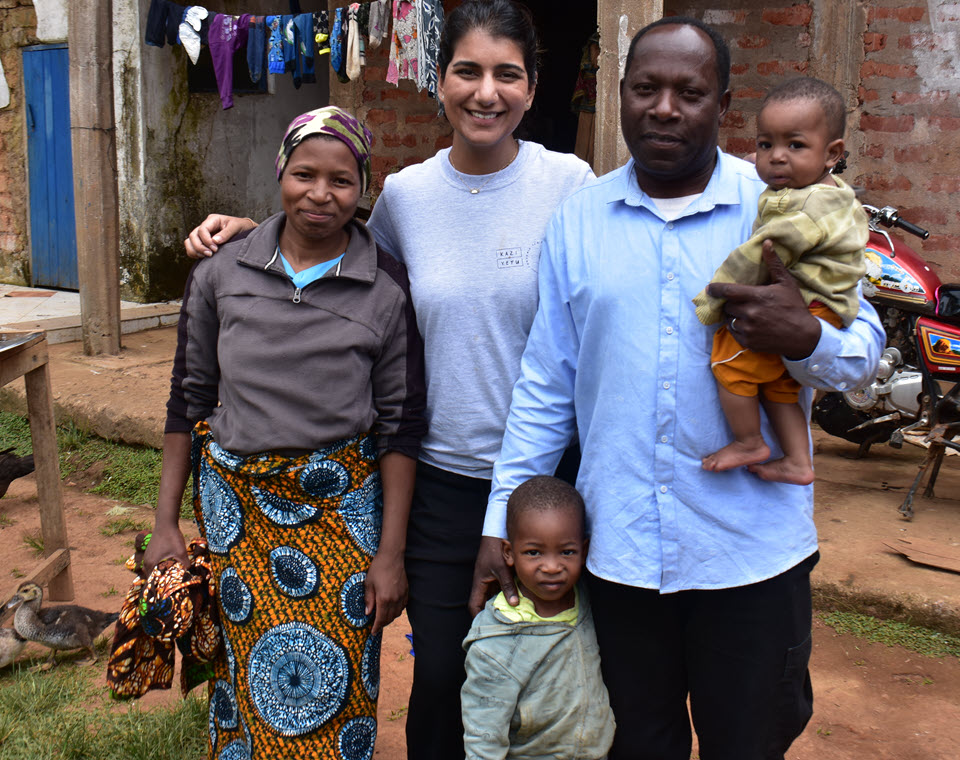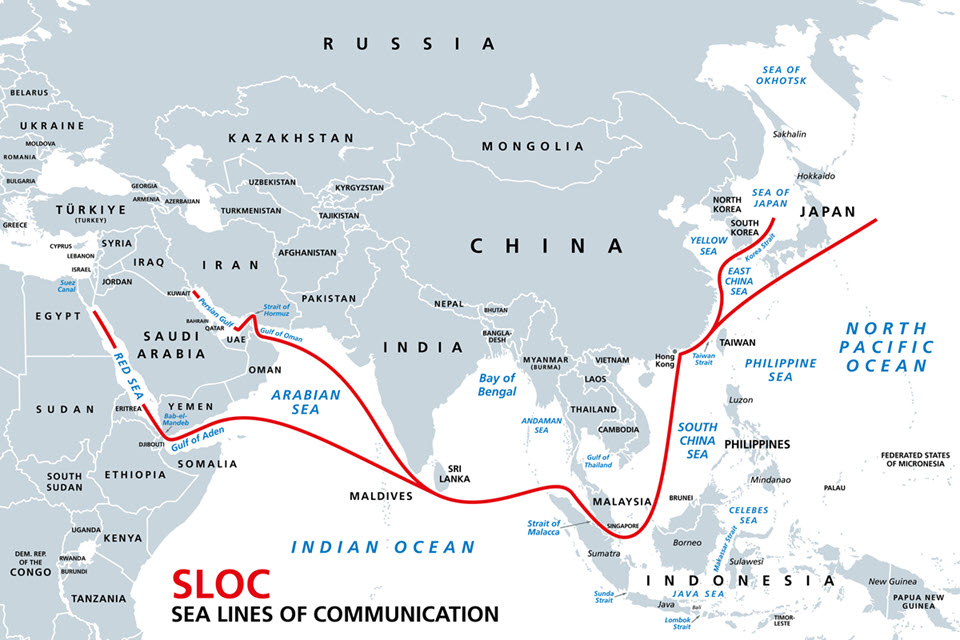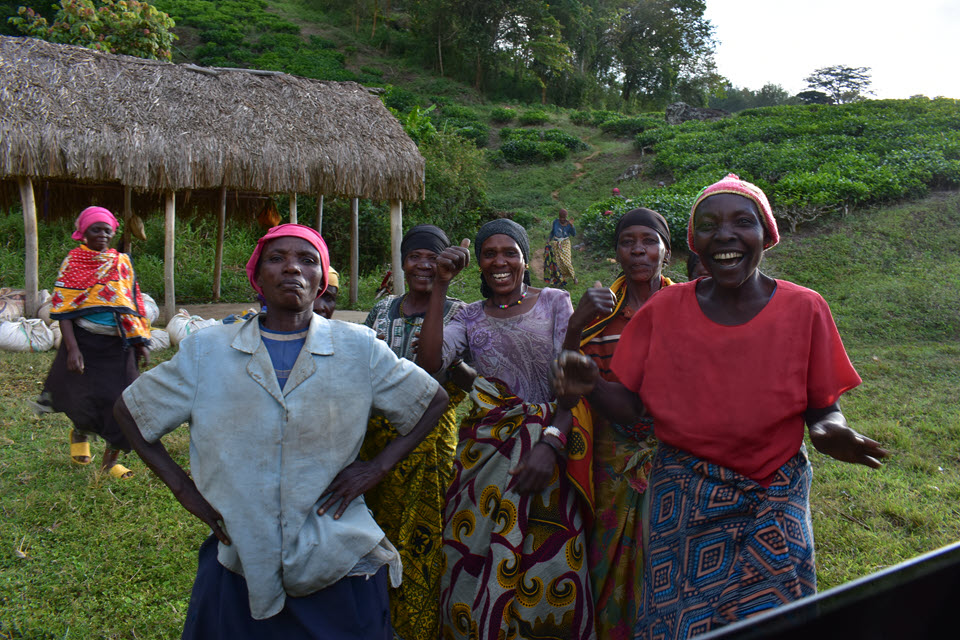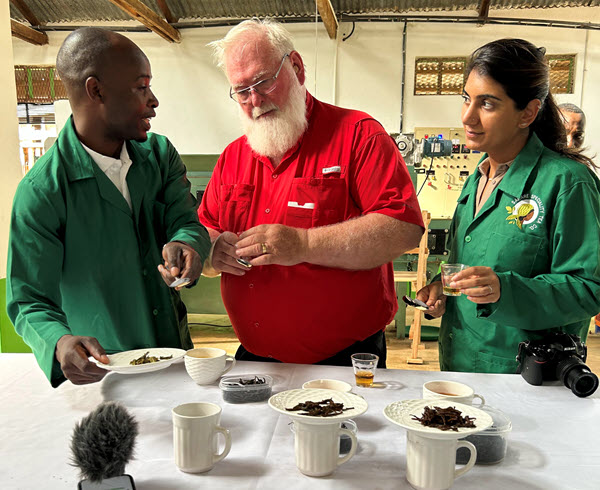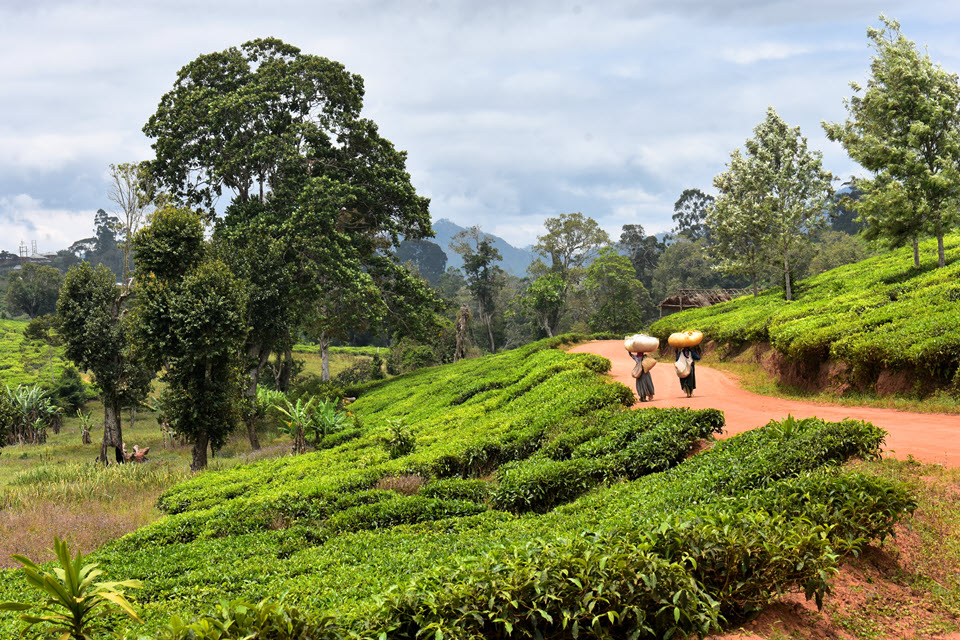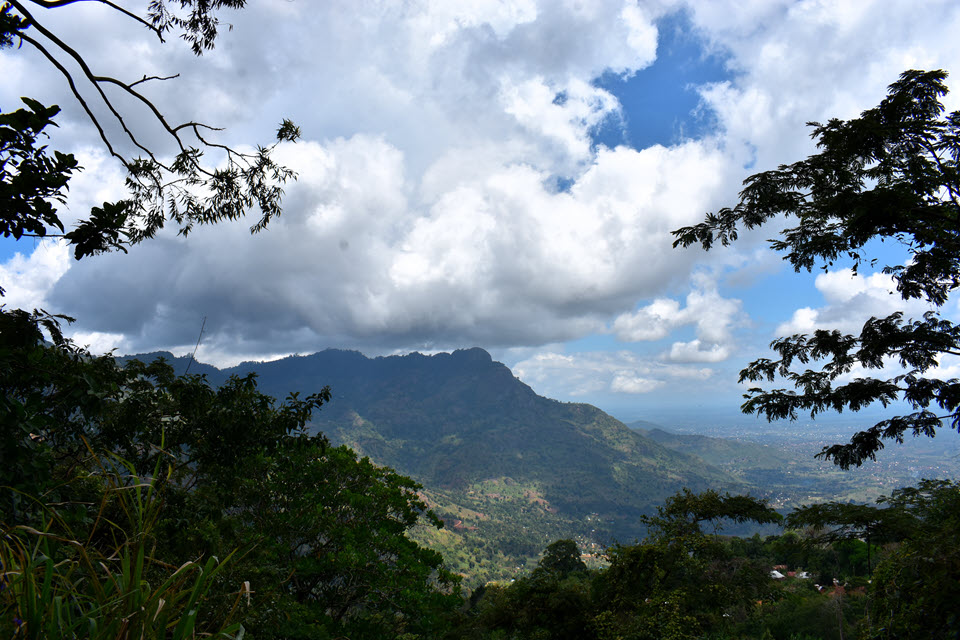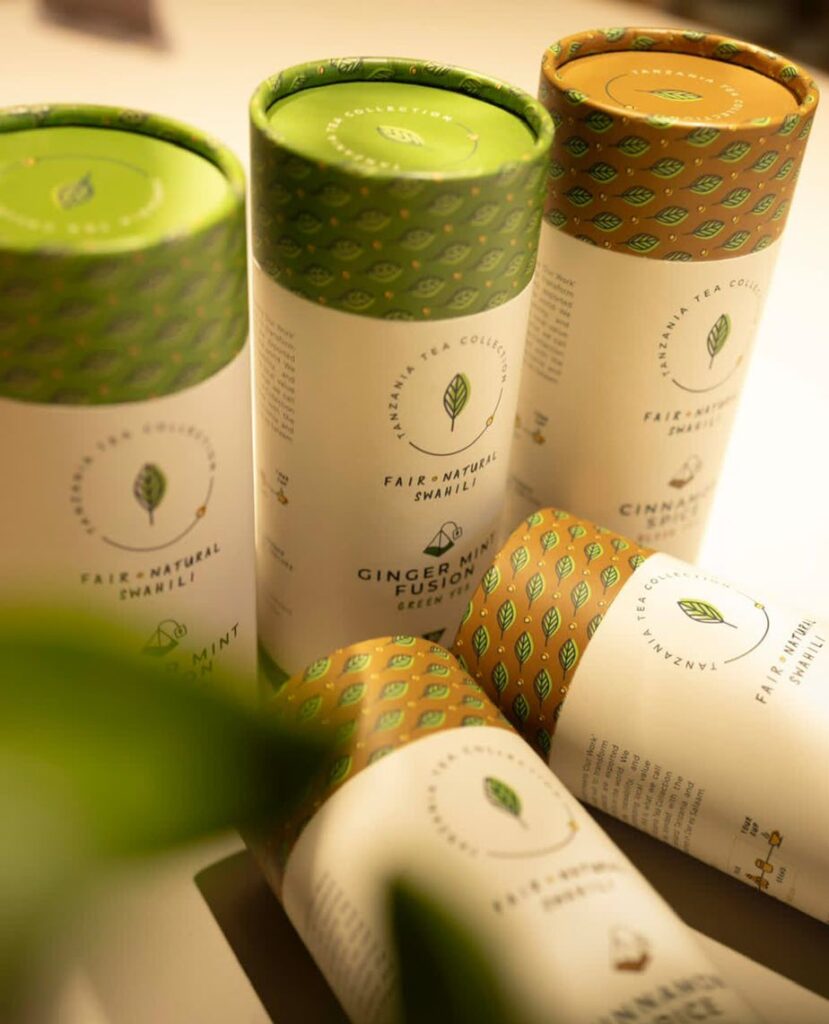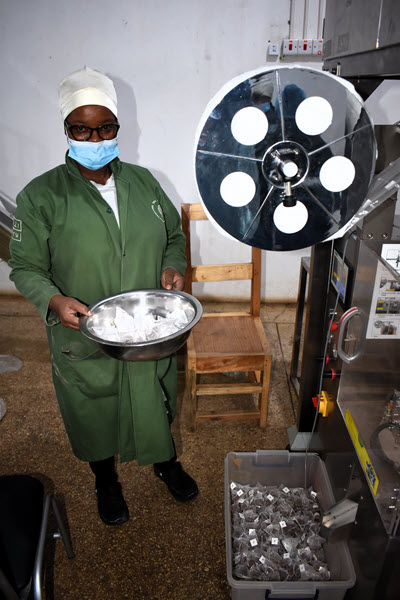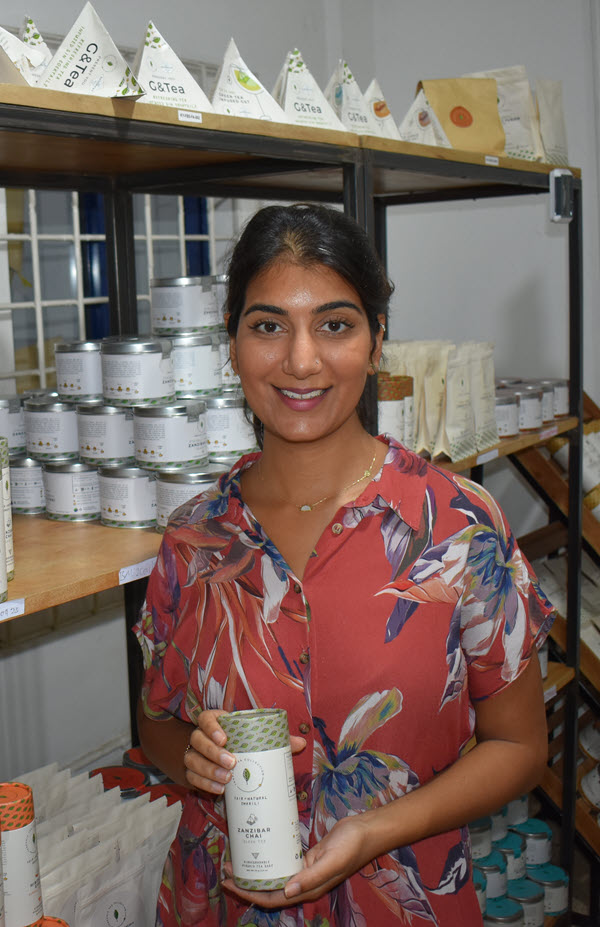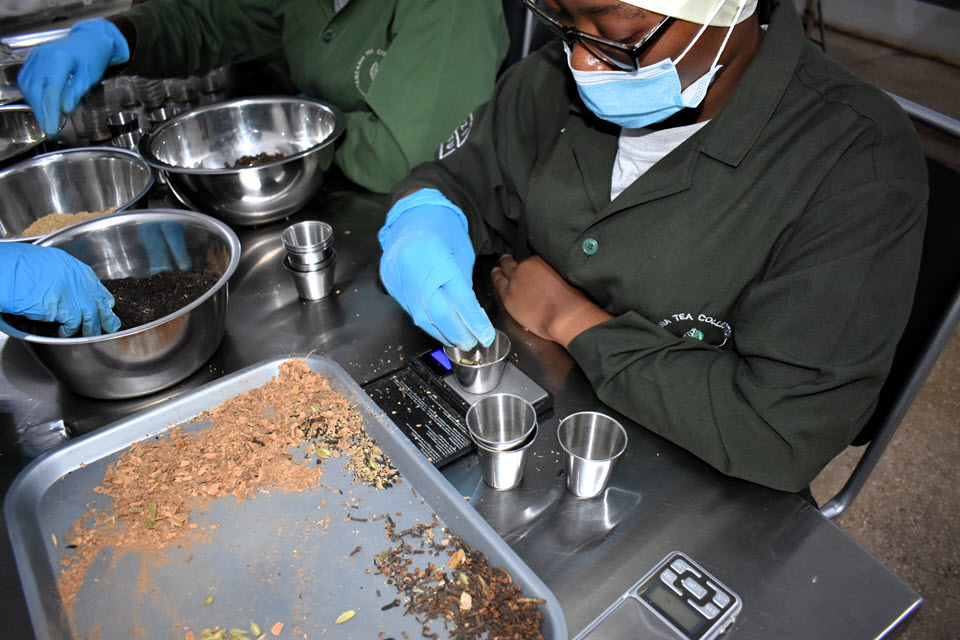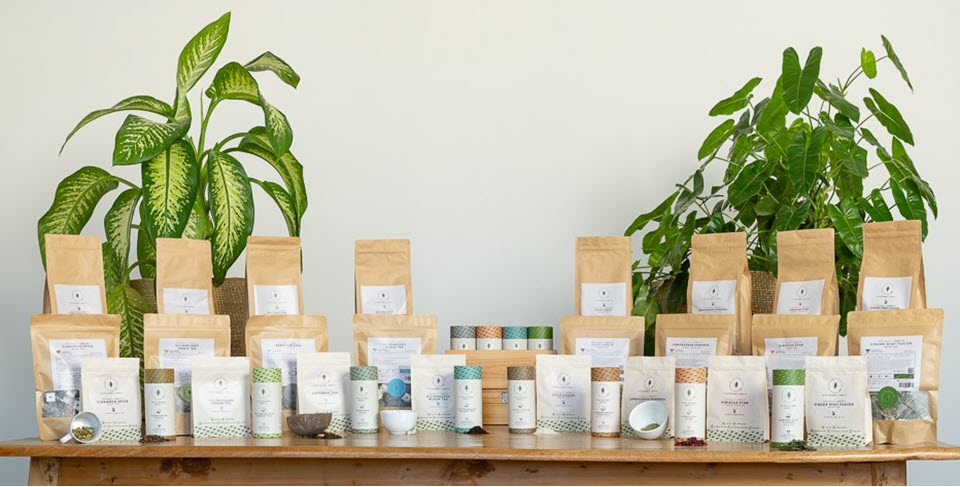Episode 141
UK Tea Academy Announces 2023 Winners of The Leafies | Rooibos Tea Named a Top 10 Pantone Color for 2024 | FSSAI Steps Up Safety Analysis of Indian Tea Factories
Tea News for the week ending Nov. 3
PLUS | Tea was first cultivated in what is now Tanzania by German colonists early in the 20th century. Farms were planted high in the Usambara Mountains, a biodiversity hotspot in the shadow of Mt. Kilimanjaro rising vertically from the plains. The region was known as Tanga and would later, under British rule, become Tanganyika. The UK greatly expanded tea production through the 1960s and remains a major trading partner with the Republic of Tanzania. Joining us today is Steve Anyango, an expert strategist in commodity trading and logistics with deep ties to tea. Steve is Managing Director, Nemooneh Iranian Food & Beverage Industries.
Listen to the interview
Powered by RedCircle
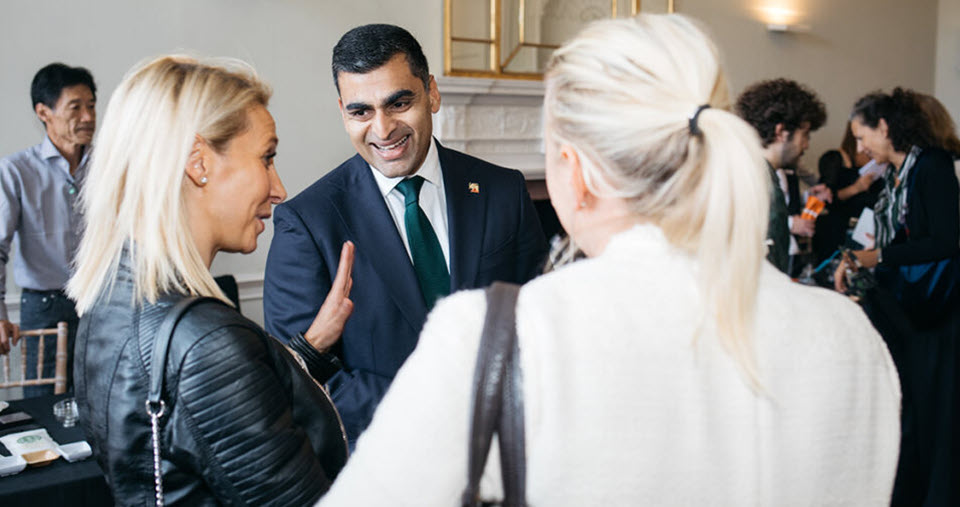
UK Tea Academy Announces 2023 Winners of The Leafies
By Dan Bolton
Winners of The Leafies are celebrating worldwide this week following an award ceremony at the Asia House attended by 100 guests, including Tea Biz London correspondent and PMD Tea Managing Director Dananjaya Silva.
Awards Ceremony
This year’s competition attracted 320 teas. Contenders were divided by type, region, and processing into 48 categories. Twenty-five of the award-winning teas were sampled after the award presentation, which included judges, winners, and beverage executives from sponsor Fortnum & Mason.
Twelve judges representing eight nationalities were awarded 13 Gold awards. Several individuals were recognized for special awards, and 36 teas were “highly commended” in citations that praised noteworthy characteristics.
Japanese teas dominated with five gold awards. India won two: Glenburn for its Darjeeling Moonshine and Rujani Tippy Reserve in Assam on the Aideobarie Tea Estate. Lumbini Tea Valley won gold for Sri Lanka, and Zen Zen took home gold for its Formosa Red Oolong tea. A Chinese Ya Shi Xiang submitted by Jantle Group also won gold.
Yame Tea Kumaen’s Gyokuro Saemidori from Fukuoka foo·koo·ow·kuh Japan was the highest-scoring tea of the competition, earning the Fortnum & Mason Best In Show award. The tea will be sold at the company’s showroom. Kazumi Nakatani traveled from Japan to brew and pour the winning tea. Zealong Tea Estate was awarded prizes for its Aged Oolong and Aromatic Oolong. Zealong also received the UK Tea Academy Lifetime Achievement Award for its pioneering tea culture 25 years ago in New Zealand. CEO Gigi Crawford served the tea.
New this year is a category for retailers selling fine tea. Chaki Co in Uji, Kyoto, Japan, won two retail gold awards. The tea venture was founded by tea farmers who are masters of “deconstructing and reassembling” tea. Dorothy’s Teas was named Best Seller of White Tea for its Shannong Estate Silver Needles.
View all the winners at ukteaacademy.co.uk/the-leafies

- Yame Tea Kumaen – Gyokuro Saemidori
- Ocha-no-Kajihara – Koshun Kamairicha Spring 2023
- Jantle Group – Ya Shi Xlang
- Zen Zen Thé – Red Oolong Tea
- Zealong Tea Estate – Aromatic Oolong
- Glenburn Fine Tea – Darjeeling Moonshine
- Rujani Tea – Tippy Reserve
- Lumbini Tea Valley – Sinharaja Wiry Tips
- Kagoshima Horiguchi Seicha/Wakoen – Kakuhori Benifuuki Black Tea
- Furukawa Seicha – Asahi & Ujihikari
- Chaki Co – Chaki Gyokuro
- Dorothy’s Teas – Shannon Estate Silver Needles
- Chaki Co – All About Ujicha

Rooibos Red Chosen as one of the Top 10 Colors for 2024
By Dan Bolton
The arbiters of fashion selected rooibos red as one of the top ten colors in 2024 during New York Fashion Week, which attracted 230,000 designers, editors, stylists, celebrities, and influencers.
Pantone “is not just a name in color but a global gold standard, according to the company, which annually releases a New York edition of its Fashion Color Trend Report.” This year’s color palette “is steeped in a kind of retrospective warmth, but also indicates change, marking a transition towards a brighter, more optimistic approach to life.”
Leatrice Eiseman, executive director of the Pantone Color Institute, writes that the spring 2024 colors “inspire feelings of release. Opening the imagination and amplifying and liberating our unique artistic spirit enables us to express ourselves in more inventive ways.”
She described Rooibos Tea (No. 18-1355 TCX) as a “full-bodied red imbued with rich, woody notes.”
Selecting the color “draws attention to the rich biodiversity of the Western Cape’s Floristic Region, where the tea is grown, potentially increasing conservation efforts and attracting eco-conscious tourists,” she said.
Tea growers responded positively to the news. “The brand new belle of the ball is about to walk the runway in the most tasteful of colors – if we might say so ourselves!” writes rooibos brand Carmien Tea.
The South African Rooibos Council posted the following on LinkedIn: “Aside from seeing the color popping up in new fashion collections, experts predict it will be used across industrial designs, from cars, electronics, AI, and technology to interiors, films, and animation. Fashion icons like Gucci, Zegna, Josie Natori, Bally, and Emilio Pucci have already embraced this rich red, woody hue. Get your Rooibos on!”
“It has been an exciting journey to witness the rise of Rooibos and its adoption across industries,” says Marthane Swart, secretariat of the Rooibos Council.



BIZ INSIGHT – Rooibos symbolizes South Africa’s heritage and is an important export product. Global recognition not only boosts national pride but may increase the tea’s international appeal, potentially boosting sales – a portion of which is shared with indigenous peoples who first harvested and brewed the popular beverage.
India Tea Undergoing
FSSAI Safety Analysis
India’s Food Safety and Standards Authority (FSSAI) has stepped up oversight of the tea auction centers, analyzing tea samples from various parts of the country to determine whether these are adhering to the safety standards.

The Tea Board of India is working to ensure quality standards are met. FSSAI met with tea industry stakeholders in Kolkata in early October to discuss ways to further improve.
Rejections of India’s export consignments are rare, according to FSSAI CEO G. Kamala Vardhana Rao. He told The Millennium Post that FSSAI is in talks with tea industry stakeholders for “harmonizing” standards at the Codex Alimentarius Commission level.
There are 180 Codex member countries. Every country has set its limits on food quality standards. Rao said tea must be free from “extraneous matter, added coloring, and harmful substances. Pesticides cannot exceed the Maximum Residue Limits (MRLs) in the guidelines.”
FSSAI regularly collects samples for testing, said Rao. Technicians analyze the collected samples for pesticide residues and adulterants utilizing the organization’s 220 mobile testing and 247 NABL-accredited laboratories. Results are not yet available.
Once the analysis is complete, “We will then present our findings to the industry,” he said.
– Dan Bolton
FEATURE

Tanzania Produces Good Teas Amiable for Blending Herbal Infusions
By Dan Bolton
Tea was first cultivated in what is now Tanzania by German colonists early in the 20th century. Farms were planted high in the Usambara Mountains, a biodiversity hotspot in the shadow of Mt. Kilimanjaro rising vertically from the plains. The region was known as Tanga and would later, under British rule, become Tanganyika. The UK greatly expanded tea production through the 1960s and remains a major trading partner with the Republic of Tanzania. Steve Anyango, Managing Director at Nemooneh Iranian Food and Beverage, is an expert in commodity trading and logistics with deep ties to tea. Steve has traded tea for years at the Mombasa Auction and sources tea globally for Middle Eastern markets. He joins us this week to discuss the favorable characteristics and future of Tanzanian tea.
Listen to the Interview
Powered by RedCircle
Share this episode with your friends in tea.
Sign up to receive Tea Biz weekly in your inbox.

